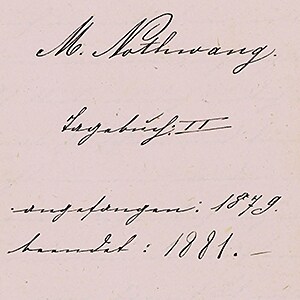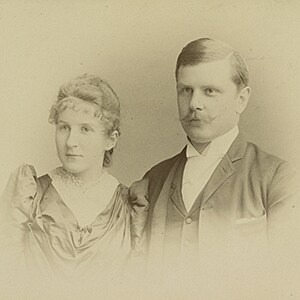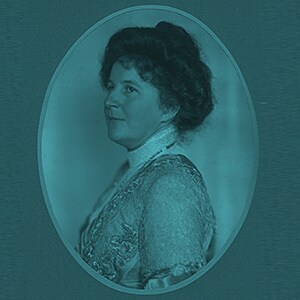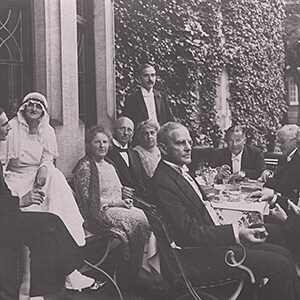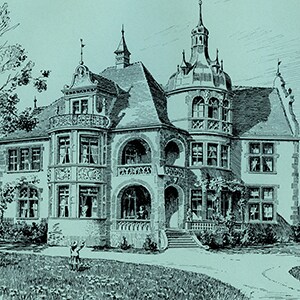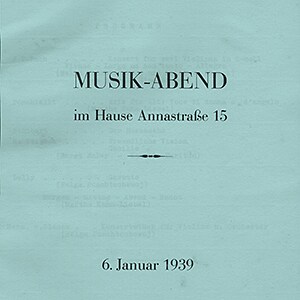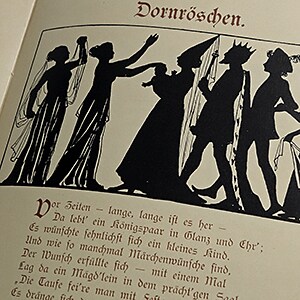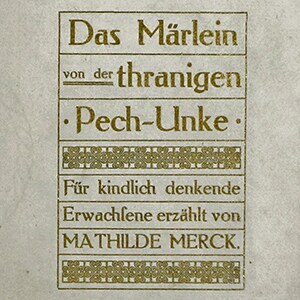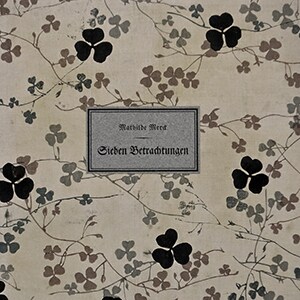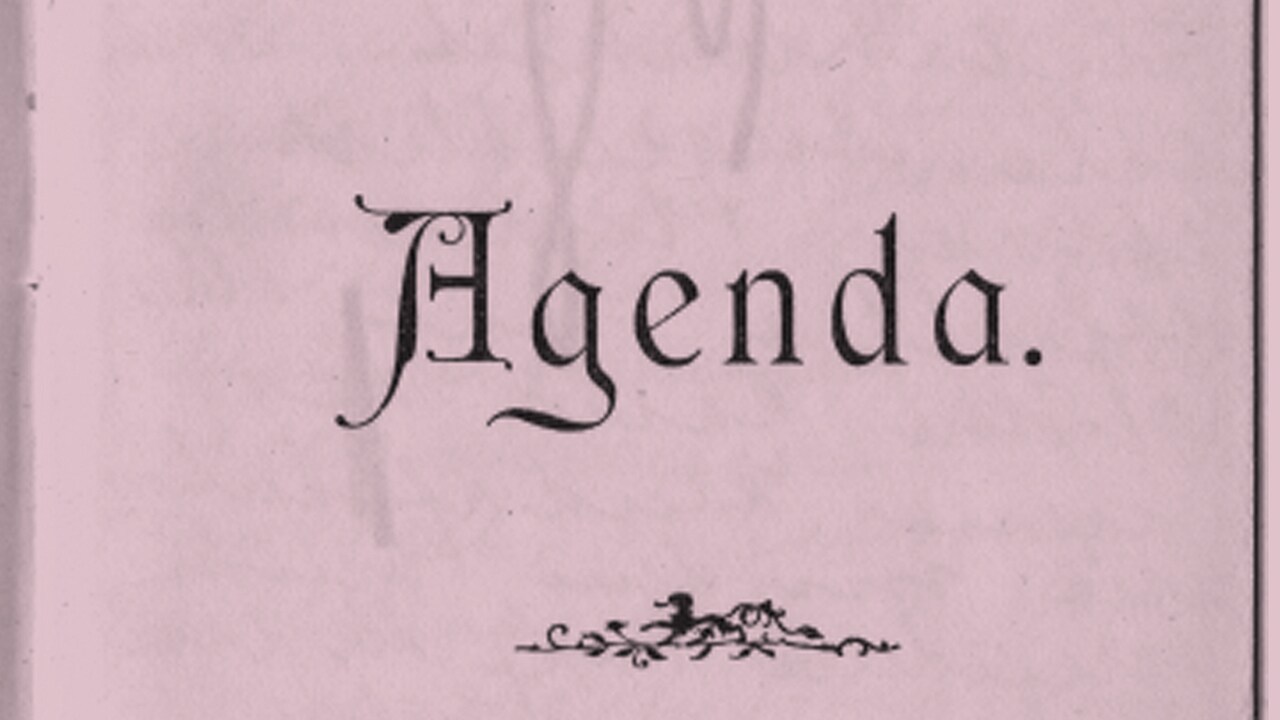
»We may on the golden path
Breathe, think and act gladly
And so within our lifetime
Transform ourselves into works of art.«
Mathilde Merck, 1913
Mathilde Merck, wife of Willy Merck, who together with his brother and cousins runs the company as a partner in the eighth generation of the family, is a complex character as well as a rather controversial woman. A merely superficial look at her life could perhaps focus on a certain facet, namely her position regarding the ideology of National Socialism. It is an ideology that she accepts, and indeed even identifies with. Nationalist mystical beliefs are deeply ingrained in her. She supports, for example, the ariosophical Edda Society, as well as nationalist associations and clubs, such as the »German Research Foundation for Ancestral Heritage«.
However, there are many other facets to Mathilde’s character that make getting to know her better worthwhile. An unusual source of information are her diaries, which are preserved in the company Archives. They bear witness to her adolescence, her life as the wife of an industrialist, and her role as a mother. They reveal a woman who runs a large household and who belongs to a family that plays an important role in the upper echelons of Darmstadt society; in short, they reflect a piece of contemporary history from a personal perspective.
»Tilla«, daughter of Frankfurt-based merchant Theodor Nothwang, starts writing a diary at the age of 11. Until her death in 1958, she fills many dozens of notebooks large and small. In these diaries she not only reflects on personal matters, but also devotes a great deal of time to documenting and commenting on the political events and upheavals of each decade, such as World War I and the situation during the Weimar Republic. Although undoubtedly the subjective view of one individual, she also expresses the views of her generation.
One special feature of Mathilde’s life is frequently the subject of her writing, namely her inner conflict between her social duties, which she often perceives as a burden, and the desire to allow her »inner being«, which longs for artistic activity and recognition, to unfold.
She seeks to resolve this conflict by promoting the arts, for which she herself has too little time. One example is the Duncan School. Founded by sisters Elizabeth and Isadora Duncan in Berlin, the dance school is run on Marienhöhe in Darmstadt from 1911 to 1914. It is based on a new teaching approach that combines intellectual and physical training and, in addition to rhythmic gymnastic exercises, also includes science education. Here Mathilde Merck also seems tosee her own ideals realized.
Mathilde feels drawn to the life reform movement at the turn of the century. She identifies with ideals such as the Beautiful, the Good and the True. In 1915, she and her husband Willy establish a Foundation, which supports company employees and their families who, through no fault of their own, have fallen upon hard times.
In 1898, Willy and Mathilde Merck move to an urban mansion designed by Munich-born architect Emanuel Seidl. The property features a wide range of architectural styles – very much in keeping with the spirit of historicism. Even beyond Darmstadt high society, Mathilde is known for her family celebrations, elegant soirées and concerts.
Mathilde herself engages in artistic activities. She considers herself a poet, publishes volumes of poetry and coffeetable books, and writes many essays, rhymes and songs. Bursting with detail and lovingly created are the children’s fairy tale books and reflections on works of art, which her husband Willy brings back from his travels.

